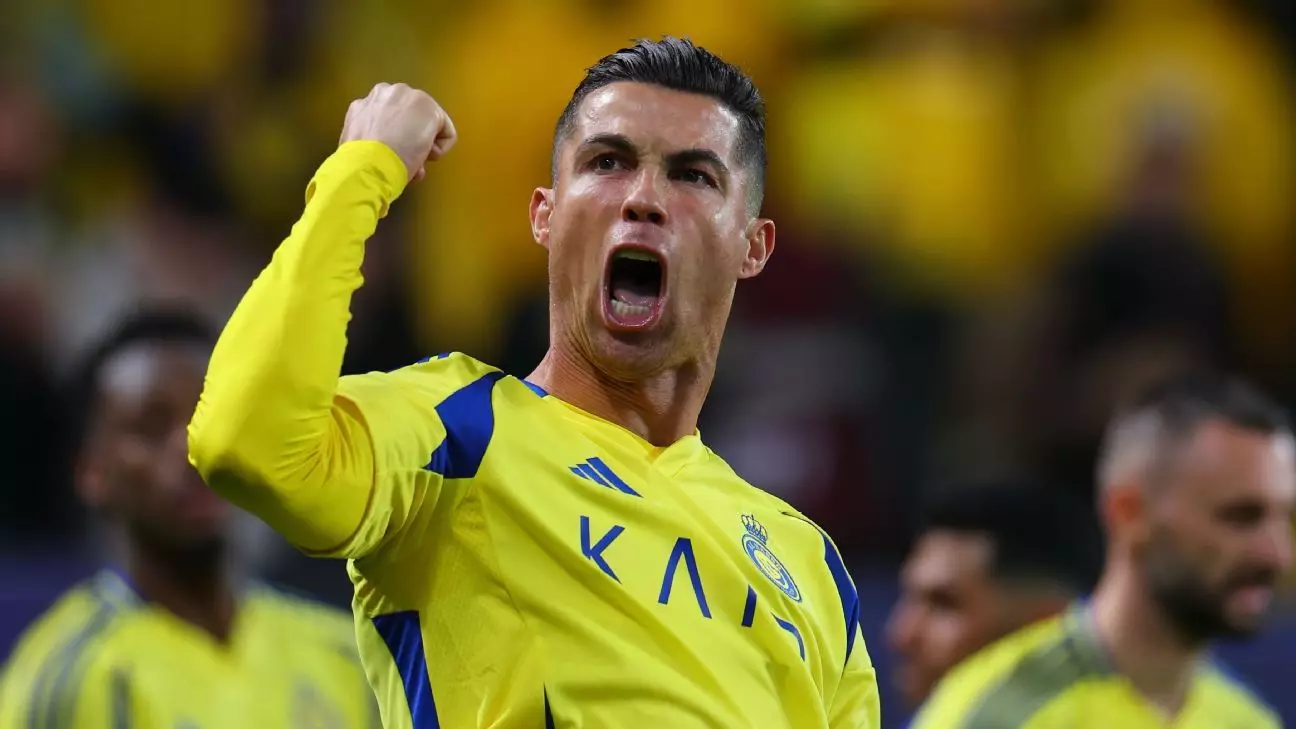Cristiano Ronaldo has emerged as a figure of admiration and controversy in the world of football, not merely for his impressive skill set and statistics but also for his unabashed confidence in his abilities. The Portuguese superstar recently declared himself “the most complete player to have existed,” a statement that has ignited discussion not only among fans but also within athletic circles. But what lies behind such a bold assertion? Can statistics alone determine the most complete player in football history, or is it a matter of personal perspective influenced by various factors?
Statistics have been a cornerstone of Ronaldo’s career, giving tangible weight to claims about his prowess on the pitch. With an astounding 923 career goals to his name, he stands as the highest men’s goalscorer in football history. In a recent interview, Ronaldo emphasized that the numbers speak for themselves, pointing to his records in various goal-scoring categories, including headers, free kicks, and penalties. Are these statistics enough to crown him the most complete player, or do they merely represent a collection of specialized skills?
Ronaldo’s argument rests heavily on the metrics of performance, showcasing his versatility as a player. Not only does he boast a remarkable scoring record, but he also remains one of the few players to perform well with both feet and his head. The implications of this are significant—Ronaldo’s ability to score in numerous ways surpasses the conventional definition of attacking play. Still, this focus on data raises questions: does the statistical landscape of football adequately capture the creativity, artistry, and moments of brilliance that define the game?
Ronaldo’s career has been heavily framed by the rivalry with Lionel Messi, a duel that has captivated fans and pundits alike. His acknowledgment of fans’ admiration for Messi, Pelé, or Diego Maradona reveals a level of respect that humanizes him amid the statistics. However, it begs the question: can rivalry and personal preference dilute the real impact of a player’s legacy? While Ronaldo claims exclusivity in being ‘the most complete,’ the subjective nature of football fandom means that admiration can exist in different forms across diverse player styles.
Moreover, players like Messi have carved out their own legacy through different strengths. Messi’s ability to play in tight spaces, conjure magic with dribbles, and create goal-scoring opportunities for teammates showcases another type of completeness. Does completeness come solely from individual accolades, or does it also involve how a player influences their team’s dynamics? This debate invites enthusiasts to explore the multifaceted nature of greatness in football.
Despite being 39 years old, Ronaldo remains a driven individual who shows no signs of slowing down. His desire to continue competing at high levels illustrates a stark contrast to how many athletes fade away as they age. He has transitioned to playing for Al Nassr in the Saudi Pro League, a move that has drawn skepticism from many fans who question the league’s quality compared to more established leagues like the Premier League or La Liga.
Upon discussing his move, Ronaldo expressed frustration with the disrespect aimed at the Saudi league, defending the level of competition as something not to be underestimated. This willingness to face challenges head-on is part of what sets him apart: rather than backing down or retreating into retirement like many of his contemporaries, he embraces new opportunities, showcasing his competitive spirit.
As he reflected on his career, including his time at Real Madrid and the negotiations that led to his exit, Ronaldo hinted at a potential return to the club where his legacy blossomed. His admiration for current players like Jude Bellingham—the young England midfielder who he likens to Zinedine Zidane—suggests that Ronaldo maintains a vested interest in the evolution of the sport.
Whether one agrees with Ronaldo’s self-proclaimed title as “the most complete player” remains subjective. What is undeniable, however, is his influence on the game and the conversation surrounding greatness. The intersection of statistics, personal rivalries, and the pursuit of continuous improvement paints a complex picture of a player who occupies a special place in football history—a place that may, in its own right, be considered one of the most complete.

